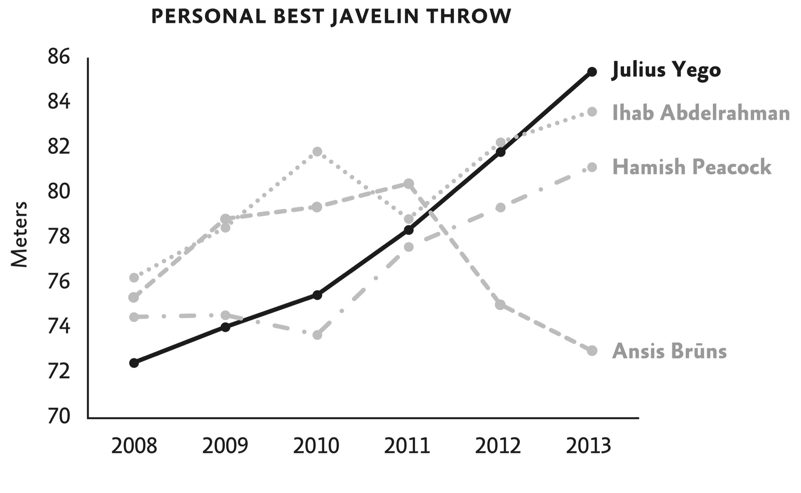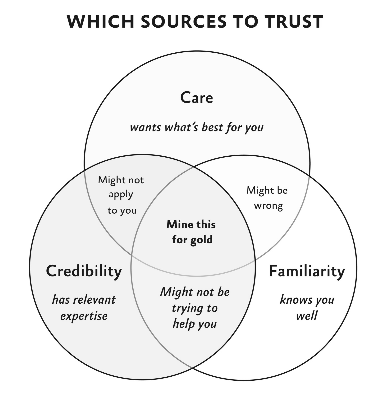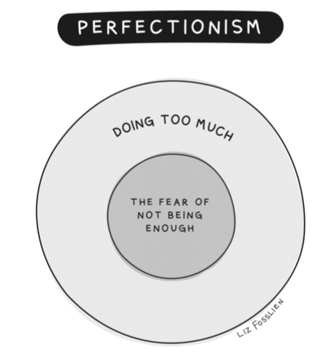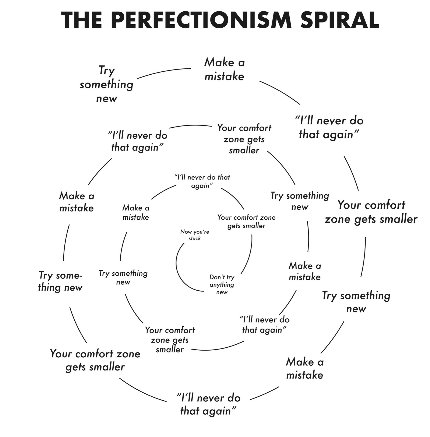In Character Skills, Accelerate Growth by Amplifying Discomfort we shared the first of three kinds of courage to develop character. This week, how to create the ability to absorb and adapt.
How do you become a human sponge?
Human Sponges
In Human Potential, Adam Grant shares interesting facts about sponges I didn’t know. Sponges aren’t plants they’re animals.
Sponges don’t subsist on sunlight—they consume food like animals.
 Nearly half a billion years ago, volcanic eruptions spewed ash into the air and phosphorus into the oceans, massive glaciers formed and melted, and oxygen levels plunged and then spiked. More than three-quarters of all species died. It was one of the first and worst mass extinction events in history.
Nearly half a billion years ago, volcanic eruptions spewed ash into the air and phosphorus into the oceans, massive glaciers formed and melted, and oxygen levels plunged and then spiked. More than three-quarters of all species died. It was one of the first and worst mass extinction events in history.
One species survived and thrived. Entire forests of sea sponges grew and flourished.
Sponges filter out toxic substances and unhealthy particles. Their flagella, which look like tiny hairs create currents that catch nutrients and expel bacteria.
Being a sponge is more than a metaphor. It’s a character skill—a form of proactivity vital to realizing hidden potential.
Improving depends not on the quantity of information you seek out, but the quality of the information you take in.
Absorptive Capacity
Growth is less about how hard you work than how well you learn. Absorptive capacity is the ability to recognize, value, assimilate, and apply new information.
It hinges on two key habits.
- How you acquire/absorb information: Do you react to what enters your field of vision, or are you proactive in seeking new knowledge, skills, and perspectives?
- What goal do you pursue when filtering information: Do you focus on feeding your ego or fueling your growth?
 Being reactive and ego-driven is a surefire way to short-circuit learning. It traps people in a protective bubble.
Being reactive and ego-driven is a surefire way to short-circuit learning. It traps people in a protective bubble.
This limits access to new information and rejects any input threatening your image. Your thin skin leaves you with thick skulls.
When people are proactive and ego-driven, it opens the door to more information.
Rather than being passive consumers, they’re active seekers of feedback—but if it’s negative, it gets weeded out.
It’s too uncomfortable. These people are impervious to constructive criticism. They’re like Teflon: nothing sticks.
Learning is more likely when people are reactive and growth-oriented.
Responding with an eye toward improvement makes people moldable, like clay.
If you’ve been praised as being coachable or teachable, this is YOU!
You’re not worried about whether criticism will hurt your ego. You embrace discomfort and internalize whatever input might help you develop.
The problem is if you don’t seek information beyond what’s easily available. You won’t make progress until someone picks you up and shapes you. Your growth depends on guidance from others—You rarely take learning into your own hands.
 People who are proactive and growth-oriented, grow MORE!
People who are proactive and growth-oriented, grow MORE!
YOU become a sponge. YOU take initiative to expand yourself and adapt.
No Coach, No Problem - Julius Yego
This character skill is especially valuable when the deck is stacked against you—as a pair of young javelin athletes in Africa learned.
Ihab Abdelrahman was built for the javelin, towering at 6’4” and weighing 212 pounds. He grew up in Egypt.
Julius Yego didn’t have those physical advantages. He grew up in Kenya. He stood just 5’9” and weighed only 187 pounds—he wasn’t a freak of nature.
Ihab was coachable. But he was more like clay than a sponge. His approach was reactive, not proactive.
When Ihab couldn’t get funds from the Egyptian federation, he quit training and didn’t resume until five months later.
 Julius, on the other hand, took charge of his growth. When people asked who his coach was, he replied, “YouTube.”
Julius, on the other hand, took charge of his growth. When people asked who his coach was, he replied, “YouTube.”
In 2015, Julius won the world javelin championship. At 92.72 meters, his was the farthest throw in fourteen years—only two humans had ever hurled a javelin farther.
Other than a few months of training in Finland, Julius was self-taught.
Compare the graph of Julius to Ihab's personal best throws.
A do-it-yourself approach can be effective for certain kinds of learning.
If you’re doing a relatively mechanical task like throwing the javelin, you can make great strides by absorbing objective techniques.
Discover the Truth
A problem Grant discovered in learning how to improve his public speaking, when you want helpful input, people are often reluctant to share it.
We hesitate to tell friends they have food in their teeth. We confuse politeness with kindness.
Being polite is withholding feedback to make someone feel good today.
Being kind is being candid about how they can get better tomorrow. It’s possible to be direct in what you say while being thoughtful about how you deliver it.
Criticism
There’s nothing wrong with taking criticism personally. Taking it personally shows you’re taking it seriously.
Grant notes, “Getting upset isn’t a mark of weakness or even defensiveness—as long as your ego doesn’t stand in the way of your learning.”
 Sources to Trust
Sources to Trust
A key to being a sponge is determining what information to absorb versus what to filter out.
It’s a question of which coaches to trust. Grant breaks trustworthiness down into three components: care, credibility, and familiarity.
Being a sponge is not only a proactive skill—it’s a prosocial skill.
Done right, it’s not just about soaking up nutrients that help us grow. It’s also about releasing nutrients to help others grow.
To create an environment where everyone is inspired to give their best, contact Positioning Systems to schedule a free exploratory meeting.
Turn your team into a repeatable coaching and growth organization.
Growth demands Strategic Discipline.
 Next blog, the character development of Imperfectionist. Perfectionist get three things wrong in their efforts to be flawless, obsessing about details that don’t matter, avoiding unfamiliar situations and tasks that might lead to failure, and berating themselves for mistakes, making it harder to learn from them. (Confession, I’m guilty of the last one!)
Next blog, the character development of Imperfectionist. Perfectionist get three things wrong in their efforts to be flawless, obsessing about details that don’t matter, avoiding unfamiliar situations and tasks that might lead to failure, and berating themselves for mistakes, making it harder to learn from them. (Confession, I’m guilty of the last one!)
Building an enduring great organization requires disciplined people, disciplined thought, disciplined action, superior results, producing a distinctive impact on the world.
Discipline sustains momentum, over a long period of time, laying the foundations for lasting endurance.
A winning habit starts with 3 Strategic Disciplines: Priority, Metrics, and Meeting Rhythms. Forecasting, accountability, individual, and team performance improve dramatically.
Meeting Rhythms achieve a disciplined focus on performance metrics to drive growth.
Let Positioning Systems help your business achieve these outcomes on the Four most Important Decisions your business faces:
|
DECISION |
RESULT/OUTCOME |
|
PEOPLE |
|
|
STRATEGY |
|
|
EXECUTION |
|
|
CASH |
|
Positioning Systems helps mid-sized ($5M - $500M+) businesses Scale-UP. We align your business to focus on Your One Thing! Contact dwick@positioningsystems.com to Scale Up your business! Take our Four Decisions Needs Assessment to discover how your business measures against other Scaled Up companies. We’ll contact you.
NEXT BLOG – The Sweet Spot Between Flawed and Flawless – Human Potential






.jpeg?width=150&height=135&name=Hand%20with%20marker%20writing%20the%20question%20Whats%20Next_%20(1).jpeg)

